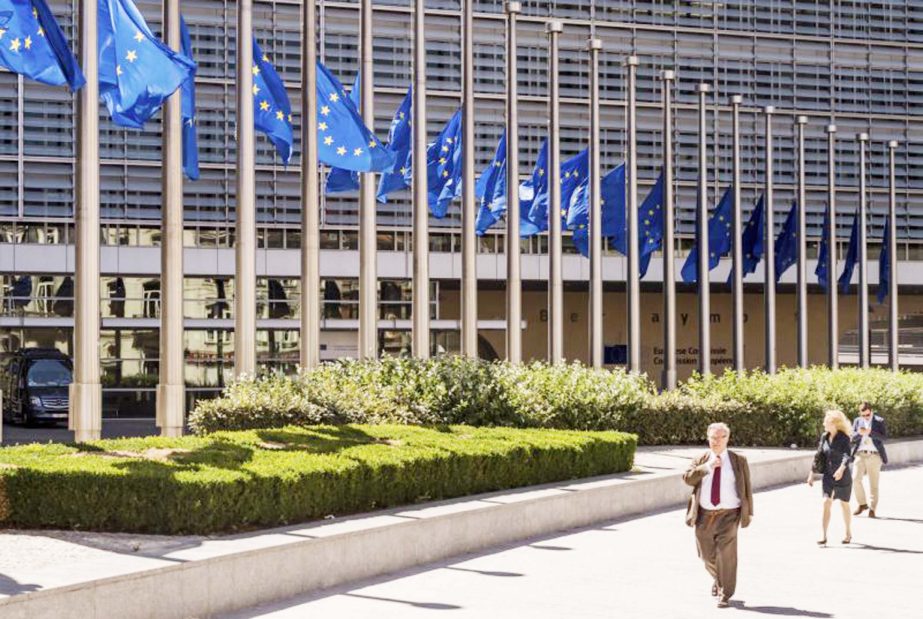
AP, London :
When Britain voted to leave the European Union a year ago, proponents argued Britain’s economy was being held back by the slow-growing, dysfunctional bloc.
A year on, and with the Brexit divorce talks finally starting, the situation is radically different.
Britain’s economy is growing more slowly than Greece’s, its households are getting poorer as inflation rises and the government is struggling to stay in power. The remaining 27 members of the EU, meanwhile, appear to have pushed into a higher gear and found renewed vigor from the election of pro-EU governments like that of France.
“The tables have turned somewhat,” said James Nixon, chief European economist at Oxford Economics. “The European economy is now enjoying a solid upswing and sentiment, especially towards the EU, is improving.”
The situation could embolden the EU negotiators in the Brexit talks and weaken the British side, though it is still far from certain how the talks, which are due to last two years, will play out.
For Britain, it’s a role reversal, having been buoyed by strong growth in recent times – even after the momentous vote on June 23, 2016 to leave the EU.
Rather than fall into recession in the wake of the Brexit vote, as many economists had predicted, Britain last year was one of the fastest-growing economy among the Group of Seven industrial nations. That was largely due to the sharp fall in the value of the pound in the wake of the Brexit vote, which made British exports cheaper in international markets.
The EU, and the 19-country eurozone in particular, was still reeling from a debt crisis that raised questions over the future of its euro currency and was struggling to cope with a flow of refugees seeking sanctuary from the war in Syria. The Brexit vote had raised questions about the future of the EU and its detractors, including many political parties, were looking to deliver it blows in key elections in France and elsewhere.
For Britain, things have clearly gotten worse this year.
Britain’s Prime Minister Theresa May failed spectacularly to achieve a majority for her Conservative Party in the general election she called for earlier this month, undermining confidence in her ability to remain in the top job. And the economy started showing clear signs of worsening.
A 15 percent drop in the pound against the dollar has pushed up inflation as it makes imports more expensive, causing living standards to fall as wage increases fail to keep up pace. The consequence of that is households are spending less – retail sales are growing at their slowest rate in four years.
Uncertainty surrounding the outcome of the Brexit talks – such as the possibility that Britain crashes out of the EU with no deal – is also likely to make consumers cautious. As will the prospect of higher interest rates from the Bank of England.
When Britain voted to leave the European Union a year ago, proponents argued Britain’s economy was being held back by the slow-growing, dysfunctional bloc.
A year on, and with the Brexit divorce talks finally starting, the situation is radically different.
Britain’s economy is growing more slowly than Greece’s, its households are getting poorer as inflation rises and the government is struggling to stay in power. The remaining 27 members of the EU, meanwhile, appear to have pushed into a higher gear and found renewed vigor from the election of pro-EU governments like that of France.
“The tables have turned somewhat,” said James Nixon, chief European economist at Oxford Economics. “The European economy is now enjoying a solid upswing and sentiment, especially towards the EU, is improving.”
The situation could embolden the EU negotiators in the Brexit talks and weaken the British side, though it is still far from certain how the talks, which are due to last two years, will play out.
For Britain, it’s a role reversal, having been buoyed by strong growth in recent times – even after the momentous vote on June 23, 2016 to leave the EU.
Rather than fall into recession in the wake of the Brexit vote, as many economists had predicted, Britain last year was one of the fastest-growing economy among the Group of Seven industrial nations. That was largely due to the sharp fall in the value of the pound in the wake of the Brexit vote, which made British exports cheaper in international markets.
The EU, and the 19-country eurozone in particular, was still reeling from a debt crisis that raised questions over the future of its euro currency and was struggling to cope with a flow of refugees seeking sanctuary from the war in Syria. The Brexit vote had raised questions about the future of the EU and its detractors, including many political parties, were looking to deliver it blows in key elections in France and elsewhere.
For Britain, things have clearly gotten worse this year.
Britain’s Prime Minister Theresa May failed spectacularly to achieve a majority for her Conservative Party in the general election she called for earlier this month, undermining confidence in her ability to remain in the top job. And the economy started showing clear signs of worsening.
A 15 percent drop in the pound against the dollar has pushed up inflation as it makes imports more expensive, causing living standards to fall as wage increases fail to keep up pace. The consequence of that is households are spending less – retail sales are growing at their slowest rate in four years.
Uncertainty surrounding the outcome of the Brexit talks – such as the possibility that Britain crashes out of the EU with no deal – is also likely to make consumers cautious. As will the prospect of higher interest rates from the Bank of England.

